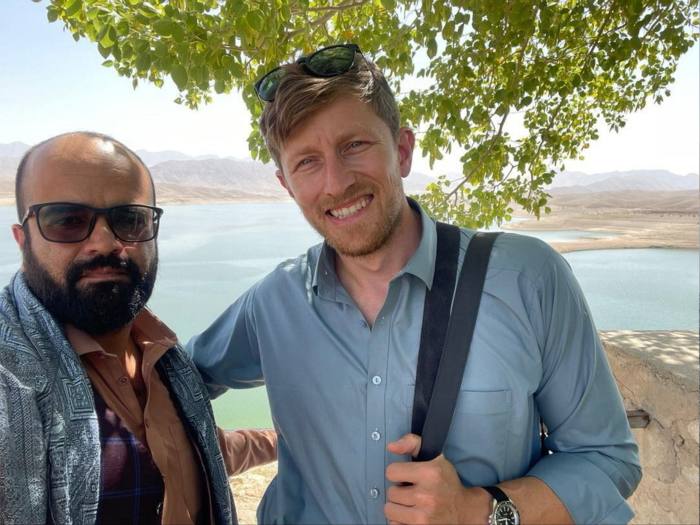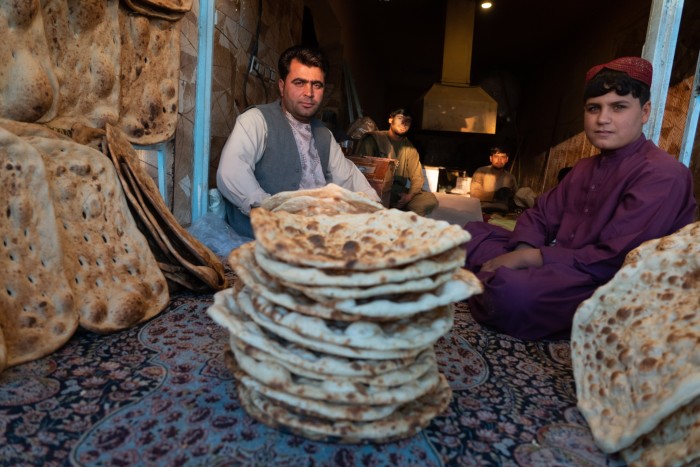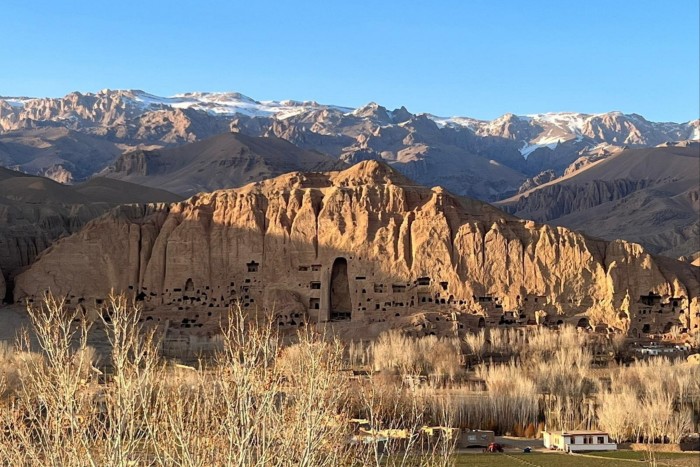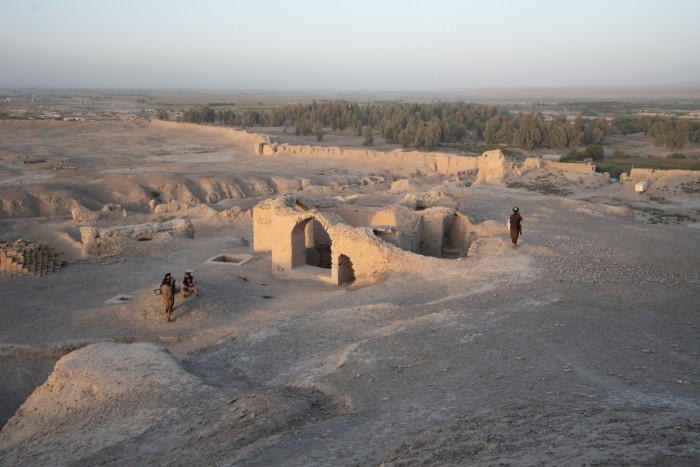Twenty months on from the chaotic fall of Kabul, when thousands of Afghans and expatriates scrambled to flee the country, a small but growing number of tourists are going back in.
On May 6, the first group trip with newly established tour operator Safarāt is due to arrive in Kabul for a two-week itinerary that will circle the country via Kandahar, Herat and Bamyan. Another operator, Untamed Borders, has a group flying in this weekend to undertake a similar route in reverse.
The tourists are flying in the face of the starkest official warnings. The UK Foreign Office says the country is “extremely dangerous” and recommends no one should visit; the US State Department warns that “the risk of kidnapping or violence . . . is high”. Three UK citizens, including the 23-year-old YouTube “danger tourist” Miles Routledge, are currently being held in prison by the Taliban; Isis cells continue to operate in the country.
Meanwhile, the UN says Afghanistan remains “the world’s largest humanitarian crisis”, and that there has been an “annihilation of women’s rights” since the Taliban takeover. It says it may have to take the “heartbreaking” decision to pull out of the country next month if it cannot persuade the Taliban to reverse its decision to ban local women from working for the organisation.

The tour operators argue that travel in the country is now possible because it has, ironically, become safer since western forces pulled out. “The Taliban were responsible for the vast majority of the insurgency in Afghanistan, so the minute they gained control of the country, security rapidly improved,” says Joe Sheffer, founder of Safarāt.
Sheffer, a photojournalist with a long career working in conflict zones such as Iraq, Afghanistan and Ukraine for broadcasters including CNN, ABC and NBC, says he is medically trained, and the trips insured via specialist providers, but that he wouldn’t hesitate to pull the plug on trips should the security situation deteriorate.
Aside from personal risk, though, a holiday to Afghanistan puts visitors at the sharp end of longstanding ethical dilemmas: whether tourism helps legitimise a repressive government or helps encourage reform through greater international exposure and the prospect of economic benefits. And whether leisure travel is inherently insensitive in a country with humanitarian problems on the scale of Afghanistan’s.
“Travelling to Afghanistan is a deeply complex endeavour and often reeks of atrocity porn,” says Arash Azizzada, co-director for Afghans for a Better Tomorrow, an Afghan American advocacy and community organisation. He is particularly critical of the YouTubers and TikTokkers who have independently visited the country since 2021 and shared “extreme tourism” reports online; videos posted include those with titles such as “I went shooting with the Taliban” and “I joined a Taliban parade”.


“It is disturbing for us to see western travel vloggers roam freely about the country while Afghan women are banned from public parks, schools and universities,” says Azizzada. “Not to mention that Afghan journalists as well as their fellow Afghan vloggers are being arbitrarily jailed, beaten and punished by the Taliban. Instead . . . anyone travelling to Afghanistan ought to speak with Afghans who have been on the receiving end of the Taliban’s cruel rule.”
Both Safarāt and Untamed Borders argue that, rather than engaging in extreme or dark tourism, they are focusing on Afghanistan’s history and culture, encouraging dialogue and, crucially, providing a direct source of income to Afghan families, including many whose work has dried up following the Taliban takeover. Safarāt’s trips use homestays wherever possible.
“I suppose you could say we are supporting the Taliban because we are helping to make the country liveable,” says Sheffer. “But we are not going to change the behaviour of the Taliban by punishing Afghan people.”

Getting to Afghanistan is surprisingly straightforward. There are direct flights into Kabul from Dubai, Islamabad and Istanbul; visas can be issued within 24 hours. Tour operators say that despite the Taliban’s oppression of women, female western tourists can travel freely, wearing a headscarf and loose-fitting clothes. The diktat that women must have a male chaperone has no practical impact given that tour groups always travel together.
Sheffer says the idea to move into tourism was the result of a pub conversation with someone arguing that the media was exaggerating the resolve of the Ukrainian people and their military successes. “I said, ‘OK, I’m going back next week, come with me and actually speak to people,’” says Sheffer. That trip never happened but the idea of taking people “to see with their own eyes” stuck.
He settled on Afghanistan partly because, despite more than 25 journalistic trips to the country, he felt that being embedded with the Afghan or US army had left him with only a partial experience of the country. He recalls a visit to the town of Ghazni with a US general in which the group came under fire within minutes. “It’s surreal and to go back there now and wander through the bazaar with the shopkeepers wanting to talk and engage with you.”
Untamed Borders, which ran regular trips to Afghanistan between 2008 and 2020, restarted its operations in September and says it will take between 50 and 60 travellers there this year. As well as cultural tours it offers ski trips to the Koh-e-Baba mountains (including one last month led by a female Slovenian mountain guide). Safarāt has already run two small private trips; two places out of eight remain available for its first group trip next month, at a cost of $4,900 per person, with a second departure in September. Another company, Wild Frontiers, says it hopes to restart trips next year.


Prior to the Soviet invasion, Afghanistan was seen as a highlight of the hippie trail, and several tour operators relaunched trips in 2002 following the ousting of the Taliban. Among them was Hinterland Travel, run by the late Geoff Hann, sometimes referred to as the world’s most extreme tour guide, who died last year at the age of 85 after suffering a stroke while leading a trip in Iraq.
Hann ran trips to Afghanistan for 40 years but was wounded in 2016, along with five in his group, when the minibus in which they were travelling through Herat was attacked and burst into flames. Speaking later to the Mirror newspaper, he expressed his annoyance that some of the clients had asked for their money back: “How many people go on holiday and get shot by the Taliban? They can dine out on that story for years.”
Find out about our latest stories first — follow @ftweekend on Twitter
Stay connected with us on social media platform for instant update click here to join our Twitter, & Facebook
We are now on Telegram. Click here to join our channel (@TechiUpdate) and stay updated with the latest Technology headlines.
For all the latest Travel News Click Here
